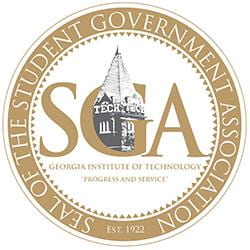
Undergraduate Executive Review
Yellow Jackets,
As 2020 is (finally) coming to a close, we want to take a moment and thank you for all of your hard work in making this Fall semester a success. You make Georgia Tech better and we appreciate all of your hard work in collectively keeping our community safe! Congratulations to all of our seniors that just celebrated graduation!
Attached you will find the Undergraduate Student Government Association Executive Review for the Summer and Fall 2020 Semesters. We encourage you to take a few moments to review our advocacy efforts and reach out tosga@gatech.edu with questions or areas of interest that we can be of any assistance with. You can also clickhereto view the document. As always, at any time you can go tohttps://www.sga.gatech.edu/ to view all of SGA’s resources and communications.
From all of us here at SGA, we wish you a refreshing winter break and happy holidays!
In Progress and Service,
Undergraduate Student Government Association



